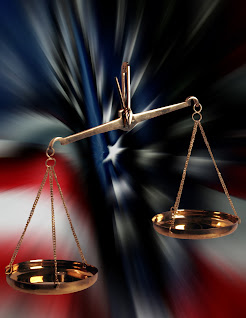Suing Supervisors For Discrimination In Washington
Under the Washington Law Against Discrimination (WLAD), can supervisors be individually liable for employment discrimination? Here’s my point of view (NOTE: please read our DISCLAIMER before proceeding).
I believe that supervisors, along with their employers, can be held liable for their discriminatory acts.
WASHINGTON LAW AGAINST DISCRIMINATION
Under WLAD, it is an unfair practice, with very few exceptions, for an employer to refuse to hire any person, to discharge or bar any person from employment, or to discriminate against any person in compensation or in other terms and conditions of employment because of age (40+); sex (including pregnancy); marital status; sexual orientation (including gender identity); race; color; creed; national origin; honorably discharged veteran or military status; HIV/AIDS and hepatitis C status; the presence of any sensory, mental, or physical disability or the use of a trained dog guide or service animal by a person with a disability; and state employee or health care whistleblower status.
It is also an unfair practice for an employer to retaliate against an employee because the employee complained about job discrimination or assisted with a job discrimination investigation or lawsuit.
WLAD expressly mandates liberal construction of its provisions in order to accomplish the broad purposes of the law. Brown v. Scott Paper Worldwide Co., 143 Wn.2d 349, 357, 20 P.3d 921 (2001) (citing RCW 49.60.020). Therefore, Washington State courts view with caution any construction that would narrow the coverage of the law. Id. (citing Marquis v. City of Spokane, 130 Wash.2d 97, 108, 922 P.2d 43 (1996)) (internal quotations omitted).
BROWN v. SCOTT PAPER WORLDWIDE CO. (THE CONSOLIDATED CASE)
In Brown v. Scott Paper Worldwide Co., 143 Wn.2d 349, 20 P.3d 921 (2001), the Washington State Supreme Court consolidated two separate, conflicting appeals containing one common and one separate issue. This article will only address the common issue: whether a supervisor who discriminates against an employee can be held individually liable under Washington’s Law Against Discrimination, chapter 49.60 RCW? Id.
The first of the two consolidated appeals was Brown v. Scott Paper World Wide Company (hereinafter, “Scott Paper”) and the second was Raymond v. Pacific Chemical (hereinafter, “Raymond”). Id.
Scott Paper (Individual Case)
In Scott Paper, a female paper mill employee was promoted to both the highest union position in the mill and the lead position on the paper machine. Id. at 354-55. However, she endured years of sexual harassment at work where she was shunned by coworkers, was the victim of pranks, and was referred to in derogatory, sexist terms such as “boobs” and “beaver” Brown. Id. (quotation marks omitted).
Subsequently, her human resources manager temporarily disqualified her from advancement pursuant to questionable reasons, and this was the first time the company had disqualified anyone under similar circumstances. Id.
Eventually, she was suspended for kicking a coworker, and the employer conditioned her return upon acknowledgement and development of a plan meeting certain criteria; but when her medical provider proposed a plan, the employer rejected it – however, she was eventually returned to her original position by arbitrator decision after she filed a grievance. Id.
Nevertheless, the employee subsequently filed suit in superior court for sexual harassment and discrimination based on sex and disability; and she included the employer and six of its supervisors (Supervisors) as defendants.
However, upon the Supervisors’ motion the trial court dismissed the claims against them ruling that they were not “employers” under RCW 49.60; but the Court of Appeals reversed.
Raymond v. Pacific Chemical (Individual Case)
In Raymond, the employer both recalculated an employee’s compensation and reassigned the employee after he had worked for the employer as a sales representative for four years; the employee believed that this resulted in a substantial reduction in his pay. Id. at 356. The employee further asserted that his supervisors picked on him in order to drive him out of the company when he subsequently returned to work from a vacation; and, although the employer supported its actions by citing the employee’s alleged performance/behavioral issues, it was a scheme to drive him out along with other older salespersons. Id.
Thereafter, the employer terminated the 51-year-old employee for insubordination and replaced him with a younger, less-experienced employee; and the employer either fired or encouraged three other mature workers to retire early. Id.
The employee then sued the employer and several of his supervisors (Supervisors) based on age discrimination. And similar to the case in Scott Paper, upon the Supervisors’ motion the trial court dismissed the claims against them. However, unlike the case in Scott Paper, the Court of Appeals affirmed Raymond.
Thus, there was a conflict between Court of Appeals panels on this issue.
WASHINGTON STATE SUPREME COURT
Accordingly, the Washington State Supreme Court in Brown v. Scott Paper Worldwide Co., 143 Wn.2d 349, 20 P.3d 921 (2001), consolidated Raymond and Scott Paper and addressed the issue of whether supervisors can be individually liable for employment discrimination by, inter alia: (1) analyzing the plain language of the statute; (2) distinguishing the State and Federal definitions of “employer” under the respective discrimination laws; and (3) applying the legislative intent of RCW 49.60.220.
1. Plain Language of The Statute
Washington State courts interpret chapter 49.60 RCW by first analyzing the plain language of the statute. See Brown v. Scott Paper Worldwide Co., 143 Wn.2d at 357 (citing Martini v. Boeing Co., 137 Wash.2d 357, 365, 971 P.2d 45 (1999)).
In this case, the Supreme Court focused on the definition of the term “employer.” WLAD defines “employer” as “any person acting in the interest of an employer, directly or indirectly, who employs eight or more persons, and does not include any religious or sectarian organization not organized for private profit.” Id. (citing RCW 49.60.040(3)) (NOTE: now RCW 49.60.040(11)).
However, according to the definition, the term “employer” can be interpreted, in part, as either of the following:
a. Any person acting in the interest of an employer
[or]
b. Any person who employs eight or more persons
Employees suing supervisors under WLAD could argue interpretation “a” to hold them liable while supervisors could argue interpretation “b” to escape liability.
The Supreme Court explained that although the Court of Appeals panels in Scott Paper and Raymond recognized that the statute’s grammatical structure was subject to different interpretations; they disagreed as to the correct reading. Id. at 357-58.
Consequently, the Supreme Court found that RCW 49.60.040(3) (now RCW 49.60.040(11)), by its very terms, contemplates individual supervisor liability; and a supervisor acting in the interest of an employer who employs eight or more people can be held individually liable for his or her discriminatory acts. Id. at 358.
2. State & Federal Statutes Define Employer Differently
Next, the Supreme Court in Brown firmly put an end to any attempts by supervisors/managers to argue that the narrower Federal definition of “employer” should also be used under the Washington Law Against Discrimination. The Court found significant grammatical and statutory construction differences to the extent that Federal case law was useless to its analysis.
TITLE VII: Under Title VII of the Civil Rights Act of 1964, the definition of “employer” is as follows: “[E]mployer” means a person engaged in an industry affecting commerce who has fifteen or more employees … and any agent of such a person.” Brown v. Scott Paper Worldwide Co., 143 Wn.2d at 358-59 (citing Civil Rights Act of 1964, 42 U.S.C. § 2000e(b)).
WLAD: Whereas the definition of “employer” under WLAD is as follows: “Employer” includes any person acting in the interest of an employer, directly or indirectly, who employs eight or more persons, and does not include any religious or sectarian organization not organized for private profit. Chapter 49.60.040(3) RCW (now RCW 49.60.040(11)).
Grammatically, the Court found that the two definitions were significantly different and the Federal definition was essentially unavailing. Id. at 359.
Moreover, the Court found substantial differences in statutory construction between the State and Federal definition – reasoning that RCW 49.60.040(3) (now RCW 49.60.040(11)) contains the word “includes,” which is a term of enlargement; while, in contrast, title VII uses the word “means,” which is a term of limitation. Brown v. Scott Paper Worldwide Co., 143 Wn.2d at 358-59 (citing Queets Band of Indians v. State, 102 Wash.2d 1, 4, 682 P.2d 909 (1984) (citing 2A Norman J. Singer, Statutes and Statutory Construction § 47.07, at 82 (4th ed.1973))) (quotation marks omitted).
3. Legislative Intent
Lastly, the Supreme Court in Brown considered the policy behind WLAD, and found that the legislative intent to hold supervisors individually liable for acts of employment discrimination is evidenced by chapter 49.60 RCW’s clear mandate to eliminate all forms of discrimination. Id. at 359-60 (citing RCW 49.60.010) (quotation marks omitted).
In fact, the Supreme Court suggested that there are two policies for supervisor-manager liability under Washington Law Against Discrimination: (1) “Aiding and Abetting” under RCW 49.60.220; and (2) the Definition of “Employer” under what is now RCW 49.60.040(11).
Particularly, the Court found that the Legislature’s intent to hold supervisors personally liable is manifested in RCW 49.60.220; and the inclusion of this provision establishes that the Legislature intended to reach individual wrongdoers in the workplace, not just the employers themselves. Brown, 143 Wn.2d at 360 (quotation marks omitted). The relevant law states as follows:
Unfair practice to aid violation. It is an unfair practice for any person to aid, abet, encourage, or incite the commission of any unfair practice, or to attempt to obstruct or prevent any other person from complying with the provisions of this chapter or any order issued thereunder.
RCW 49.60.220.
Moreover, the Supreme Court suggested the second policy for supervisor-manager liability--under the WLAD definition of “employer”--when it reasoned, in accord with the Court of Appeals panel in Brown, that “[I]t would be a strained construction to hold supervisors personally accountable for their acts when they aid another in discrimination but not accountable when their own actions are directly discriminatory.” Brown, 143 Wn.2d at 360-61 (internal citation omitted).
CONCLUSION
Under the Washington Law Against Discrimination (WLAD), supervisors can be individually liable for employment discrimination if the claim meets WLADs statutory requirements. The Washington State Supreme Court reached this conclusion by analyzing (1) the plain language of the WLAD; (2) distinguishing the State and Federal definitions of “employer” under the respective discrimination laws; and (3) applying the legislative intent of RCW 49.60.220.
LEARN MORE
If you would like to learn more, then consider contacting an experienced Washington State Employment Discrimination Attorney as soon as possible to discuss your case. Please note: the information contained in this article is not offered as legal advice and will not form an attorney-client relationship with either this author or Williams Law Group; please see our DISCLAIMER.
-gw








